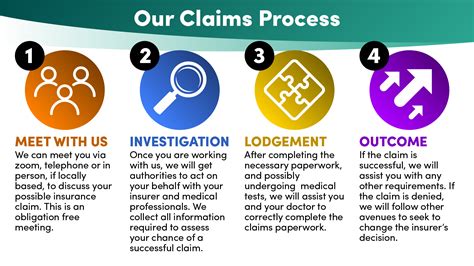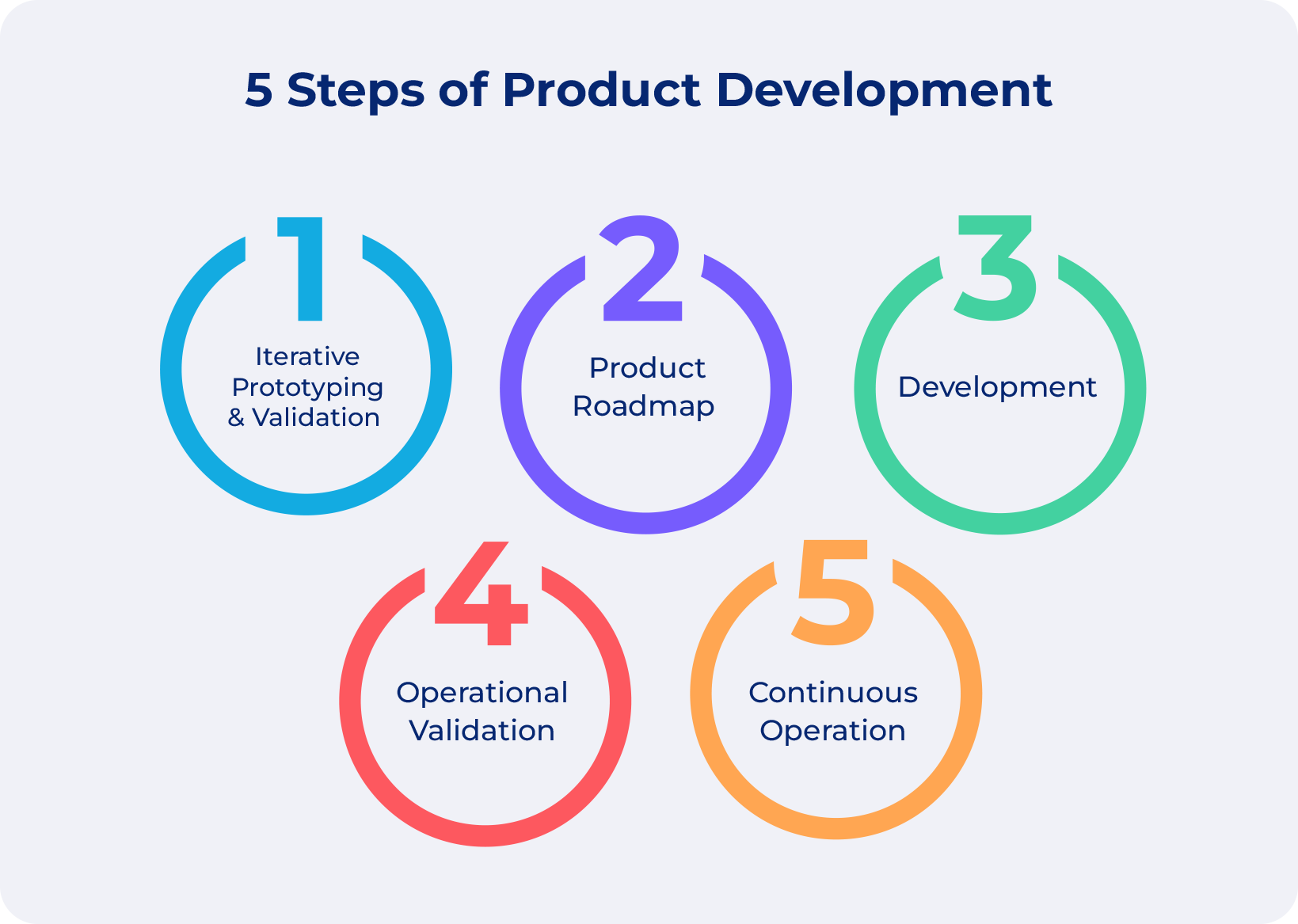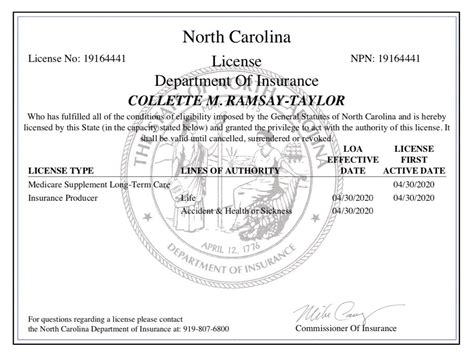Insurance Claims

Insurance claims can be a daunting and complex process, leaving many individuals overwhelmed and unsure of where to begin. Whether it's a car accident, property damage, or a medical emergency, understanding the insurance claims procedure is crucial to ensuring a smooth and successful outcome. In this comprehensive guide, we will delve into the intricacies of insurance claims, providing you with the knowledge and insights needed to navigate this often-challenging terrain.
With the right information and a strategic approach, you can streamline the claims process, maximize your benefits, and protect your financial well-being. So, let's embark on this journey, exploring the steps, strategies, and expert tips that will empower you to make informed decisions and navigate the insurance landscape with confidence.
The Fundamentals of Insurance Claims

At its core, an insurance claim is a formal request made by an insured individual to their insurance provider for coverage or reimbursement of a loss or damage. This loss can arise from various scenarios, including accidents, natural disasters, theft, or medical emergencies. The insurance claim process serves as a critical mechanism to help individuals and businesses recover financially from unforeseen events.
Insurance claims can vary significantly based on the type of insurance policy and the nature of the incident. For instance, a car insurance claim will involve a different set of procedures and documentation compared to a home insurance claim for property damage. Understanding the specific requirements and guidelines for your type of insurance is essential to a successful claim.
Key Steps in the Insurance Claims Process
- Notifying the Insurance Company: The first step in any insurance claim is to promptly notify your insurance provider about the incident. This notification should be made as soon as possible after the event, as some insurance policies have specific timeframes for reporting claims.
- Gathering Essential Information: Compile all relevant details about the incident, including dates, times, locations, and any other pertinent facts. If applicable, collect contact information from witnesses or individuals involved in the incident.
- Filing the Claim: Follow the instructions provided by your insurance company to file your claim. This often involves completing and submitting claim forms, along with any supporting documentation, such as photographs, estimates, or repair bills.
- Assessment and Investigation: Once your claim is filed, the insurance company will assess the validity and extent of the claim. This may involve an investigation, which could include sending an adjuster to inspect the damage or requesting additional information from you.
- Settlement and Payment: If your claim is approved, the insurance company will offer a settlement amount. It's important to carefully review the settlement offer to ensure it adequately covers your losses. If you disagree with the offer, you may have the option to negotiate or seek further advice.
Common Challenges and Pitfalls
While the insurance claims process can be straightforward for some, it often presents challenges and pitfalls for those who are unfamiliar with the system. Some common issues include:
- Delays in Claim Processing: Insurance companies may take longer than expected to process claims, especially during peak seasons or in cases of complex or high-value claims.
- Inadequate Documentation: Failing to provide sufficient documentation or supporting evidence can lead to claim denials or delays.
- Claim Denials: Insurance companies may deny claims for various reasons, including policy exclusions, late reporting, or fraudulent activities.
- Undervalued Settlements: Insurers may offer settlements that do not fully cover the extent of your losses. It's crucial to carefully review and assess these offers.
Maximizing Your Insurance Claim

To ensure a successful insurance claim outcome, it's essential to take a strategic and proactive approach. Here are some key strategies to maximize your claim and protect your interests:
Understanding Your Insurance Policy
A thorough understanding of your insurance policy is crucial. Review your policy documents, including the coverage limits, exclusions, and any specific conditions or requirements. If you have any questions or concerns, contact your insurance provider or an insurance professional for clarification.
| Insurance Policy | Key Coverage |
|---|---|
| Car Insurance | Liability, Collision, Comprehensive, Medical Payments |
| Home Insurance | Dwelling, Personal Property, Liability, Additional Living Expenses |
| Health Insurance | Medical, Surgical, Prescription Drug, Mental Health |

Prompt and Thorough Documentation
Documenting the incident and its aftermath is critical. Take detailed notes, photographs, and videos of the damage or loss. If applicable, collect receipts, estimates, and any other relevant documentation to support your claim. Ensure that all documentation is accurate, complete, and submitted within the required timeframes.
Seeking Professional Advice
Consider consulting with an insurance professional or legal expert, especially for complex or high-value claims. These professionals can provide valuable guidance, help you navigate the claims process, and ensure that your rights and interests are protected.
Negotiating Settlements
If you receive a settlement offer that you believe is insufficient, you may have the option to negotiate. This can be a delicate process, and it's important to approach it with a clear understanding of your rights and the value of your claim. Be prepared with supporting evidence and a well-reasoned argument for why the settlement should be increased.
Real-Life Examples: Insurance Claims in Action
Let's explore some real-life scenarios to better understand how insurance claims can play out in different situations.
Car Accident Insurance Claim
John was involved in a car accident while driving to work. He promptly notified his insurance company and provided a detailed report, including photographs of the damage and contact information for the other driver. The insurance company assigned an adjuster who inspected the vehicles and reviewed the police report. After a thorough investigation, John's claim was approved, and he received a settlement to cover the cost of repairs and rental car expenses.
Home Insurance Claim for Natural Disaster
During a severe thunderstorm, Sarah's home was damaged by a fallen tree. She filed a claim with her insurance company, providing photographs and estimates for the repair work. The insurance company sent an adjuster to assess the damage, and after a thorough inspection, Sarah's claim was approved. She received a settlement to cover the cost of repairing the roof and removing the fallen tree.
Health Insurance Claim for Medical Emergency
After experiencing severe abdominal pain, Michael was rushed to the hospital. He later filed a health insurance claim, providing detailed medical records and bills. His insurance company reviewed the claim and, after confirming the coverage, approved the claim. Michael received reimbursement for the hospital stay, surgical procedure, and prescription medications.
The Future of Insurance Claims
The insurance industry is evolving, and technology is playing an increasingly significant role in the claims process. Here are some trends and innovations shaping the future of insurance claims:
Digital Claims Processing
Many insurance companies are now offering digital platforms and mobile apps for customers to file and track their claims. This streamlines the process, allowing for faster and more efficient claim handling.
Artificial Intelligence and Machine Learning
AI and machine learning technologies are being used to automate and improve various aspects of the claims process, including fraud detection, claim assessment, and customer service.
Telematics and Usage-Based Insurance
Telematics devices and usage-based insurance programs are becoming more prevalent, particularly in auto insurance. These technologies track driving behavior and can offer personalized insurance rates and improved claim handling.
Blockchain Technology
Blockchain is being explored as a secure and transparent way to manage insurance claims, particularly in complex cases involving multiple parties and transactions.
Conclusion

Insurance claims are an essential aspect of the insurance landscape, offering financial protection and peace of mind to policyholders. By understanding the claims process, taking a proactive approach, and staying informed about industry developments, you can navigate insurance claims with confidence and maximize your benefits. Remember, while insurance claims can be complex, with the right knowledge and strategies, you can ensure a successful outcome and protect your financial well-being.
How long does it typically take for an insurance claim to be processed and settled?
+
The timeline for claim processing and settlement can vary widely depending on the type of insurance, the complexity of the claim, and the insurance company’s procedures. Simple claims with minimal damage or loss may be resolved within a few days to a couple of weeks. However, more complex claims, such as those involving severe injuries, extensive property damage, or legal disputes, can take several months or even years to settle. It’s important to stay in contact with your insurance provider throughout the process to ensure a timely resolution.
What should I do if my insurance claim is denied?
+
If your insurance claim is denied, it’s crucial to understand the reason for the denial. Insurance companies are required to provide a written explanation for denied claims. Review this explanation carefully and consider the following steps:
- Reevaluate your policy to ensure the incident is covered under your plan.
- Gather additional evidence or documentation that may support your claim.
- Consider seeking professional advice from an insurance or legal expert.
- Contact your insurance company to discuss the denial and negotiate a resolution.
- If necessary, file an appeal or consider legal action, but consult with a professional first.
How can I improve my chances of a successful insurance claim?
+
To increase your chances of a successful insurance claim, consider the following strategies:
- Thoroughly understand your insurance policy and its coverage limits.
- Promptly report any incidents or losses to your insurance company.
- Provide accurate and detailed documentation to support your claim.
- Consider seeking professional advice to ensure your claim is well-prepared.
- Stay in communication with your insurance provider throughout the process.



